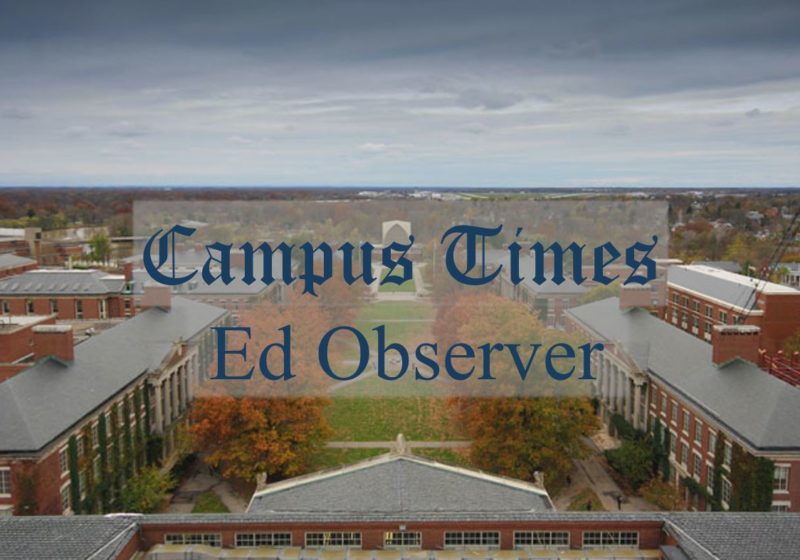In my last Ed Observer I quoted Martin Luther King Jr.’s “Letter from Birmingham Jail.” If you haven’t already, I highly recommend you read it. King lays out in beautiful prose not only how you must fight injustice, but why. He also details the pressures that he believed are impeding progress in the civil rights movement.
In the letter, King wrote that “the Negro’s great stumbling block in his stride toward freedom is […] the white moderate […] who is more devoted to ‘order’ than to justice; who prefers a negative peace which is the absence of tension to a positive peace which is the presence of justice; who constantly says: ‘I agree with you in the goal you seek, but I cannot agree with your methods of direct action’; who paternalistically believes he can set the timetable for another man’s freedom; who lives by a mythical concept of time and who constantly advises the Negro to wait for a ‘more convenient season.’”
In the Ed Observer, I wrote that “moderates are not responsible for their extreme peers.” I’m fairly certain that King wouldn’t agree with me. In retrospect, I’m not even sure I agree with me.
I definitely think that moderates shouldn’t suffer consequences for the actions of their extreme counterparts. But, if for no other reason than their humanity, they have the responsibility to act. They are associated with their extreme peers, whether they like it or not.
I am a liberal Jew, and a moderate zionist. I happen to hate Israel’s Prime Minister Benjamin Netanyahu and his policies. I think he’s racist, corrupt, and generally horrible. Despite this, I can’t say that I support Israel but not the Israeli government, unless I actually make sure my actions and donations are targeted towards individuals and charities that help Israeli individuals rather than their government.
Someone has to negotiate the gap between the many Americans who think Israel is an irredeemable apartheid state, and those who think it is a holy nation promised by God that deserves our unconditional financial and military support. Who other than the people in the middle would see merit in both sides and have the patience to negotiate a plan of action that might lead to some positive change, or at least reduce tension?
Moderates are the only thing in between two extremes. To say that moderates have no responsibility for bringing extremists to the table is absurd because they are the only ones who can or will do so. Netanyahu will not willingly enter good-faith negotiations with Mahmoud Abbas anymore than Alabama governor George Wallace would have done with King.
It takes pressure from the middle, from those without strong opinions obstructing their ability to debate reasonably, to force substantial change.
There are understandable instances of what some call moderacy. For example, say you believe something between unrestricted free-market capitalism and democratic socialism is the right economic policy, or you want limited gun control but broad freedom on the issue. Some issues have a spectrum, and should be treated that way. I would call this centrism — a political belief that is neither left nor right.
But if you’re a moderate because you think democratic socialism is good, but we shouldn’t make the change quite yet, you’re the exact kind of stumbling block that King talked about. This rings true for instances outside the political arena: In every case, if you believe in something, there is no reason to slow progress towards that goal.
There is a slightly overused Jewish proverb that states, “It is not your duty to finish the work, but neither are you at liberty to neglect it.” We don’t all need to become rabid political activists. But neither is it acceptable for us to sit on our hands and wait for change to come.
Moderates are not culpable for the actions of their extremist peers, but they are the only bridge between extremists and the rest of the world. Because of this, moderates have a responsibility to attempt to curb the excesses of the extremes, or they aren’t moderating anything. It isn’t the moderates’ responsibility to reach a solution — that requires everyone working together — but when it comes to the central issues of public debate like climate change, corruption, and racist cops, it isn’t enough to do nothing.


